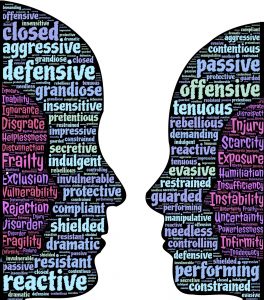Goal, Moviation, Conflict
by Cynthia Ruchti
Every novice novelist soon learns about goal, motivation, and conflict. The mysterious GMC factor drives a good novel. And it isn’t produced by General Motors Corporation.
Debra Dixon wrote a classic resource for writers–Goal, Motivation, Conflict: The Building Blocks of Good Fiction.
Following are the definitions Dixon uses:
GOAL—desire, want, need, ambition, purpose
MOTIVATION—drive, backstory, impetus, incentive
CONFLICT—trouble, tension, friction, villain, roadblock
FICTION’S VERSION
 Who?
Who?
Characters.
What?
Their goals or quests, often in conflict with one another.
Why?
That’s the motivation. What’s a stake? What do they stand to lose? Or gain?
Conflict?
What gets in the way? Both internally and externally?
In addition to writing characters worth rooting for, novelists who master the art of meaningful goals, significant motivation, and believable conflict pave the way for great storytelling.
NONFICTION’S VERSION:
Who?
Readers
What?
What’s the goal? Deepen their faith. Understand suffering. Rebound from woundedness. Heal from grief. Lose weight. Eat healthier. Pull free from financial bondage. Discover biblical truths that apply to their current need….
Why?
What’s the motivation? Why does it matter? What will they gain because of your nonfiction book? Relationship tools they haven’t had before. Understanding. A glimmer of hope. A way through their pain. What’s at stake? Souls.
Conflict?
 What gets in the way of the quest? Misunderstanding. Lack of knowledge. Resistance. Time. Insecurity. Doubt. The writer’s inability to communicate clearly….
What gets in the way of the quest? Misunderstanding. Lack of knowledge. Resistance. Time. Insecurity. Doubt. The writer’s inability to communicate clearly….
THE PUBLISHING INDUSTRY’S VERSION:
Now, consider how all of the Christian publishing industry is forever engaged in a goal, motivation, conflict struggle.
Who?
Readers, Authors, Agents, Editors, Publishers, Retailers, Librarians, Marketers, Publicists, Sales Teams…
What?
We all want to present readers with the resources they need to be uplifted, encouraged, strengthened, drawn to Christ, live godly Christ-centered lives.
Why?
We’re motivated by God’s tug on us to use the gifts we’ve been given to carry out His purposes in our circles of influence. His love compels us (II Corinthians 5:14).
Conflict?
What gets in the way? The simplest and most complete answer is everything. Because the industry is in constant flux, and because we’re motivated by high goals, we press on despite both the internal and external forces at work to disturb, disorient, or disengage us. Conflict, dilemmas, conundrums, and battles are to be expected with this much at stake.
In novels, conflict paves the way for great storytelling. So why should it be different in publishing? Are today’s battles paving the way for tomorrow’s greatest stories?
From 1891 to 1936, paperbacks were virtually banned because of a copyright ruling. Hardcover books–the norm–could not be reprinted in paperback form. By 1980, about 70% of all books sold in the United States were paperbacks.
Yet, we sometimes waste our worry about publishing. Carving letters on clay gave way to goose quill and ink on paper. And goose quill gave way to pen, which gave way to typewriters, which gave way to computers. But books live on.
We have a solid goal. We have more than enough motivation. The conflict moves the plot.
So write on!
How does goal, motivation, conflict affect your nonfiction? The industry?


Conflict – what gets in the way of the quest?
My WIP is non-fiction, on developing a intimate relationship with God. That’s a message our enemy wants to squelch. And he’s forever clever. He starts with me.
“It’s too nice a day to sit and write. Go outside and weed.”
“You’ve worked hard, take a break.”
“A few more minutes of sleep and you’ll feel so much better.”
And then his trump card:
“Look at you . . . you can’t even keep up your own relationship with God. You don’t deserve to write about it.”
Thus my personal conflict with the enemy becomes part of my narrative. Let others learn from my mistakes (let it be, dear Lord, let it be).
Great application, Shirlee.
An author told me once that the first mistake novice novelists make is conflict.
The reason, I think, is that this present world is full of conflict. How can I share my faith without being obsessive about it? Should I really be writing, or should I be working up ideas on growing income? What’s more important, serving God or seeking happiness?
And when readers identify with the characters through their conflicts, they stay.
They want to see the hero and the sidekick win – establish the business amidst fiery competition, rescue the preteen, burn that fat, admit that God is all everyone needs. They want it because there’s joy in winning. There’s hope, gratitude, contentment.
But, just as the character battles his adversary, so does the reader, and so do we all.
So true, Michael.
Interesting post, Cynthia, and a lot of food for thought.
* I think that maybe the order is sometimes wrong; conflict can drive and shape both goals and motivation. That’s certainly my world.
* I used to be normal; I used to have bright shining dreams, and was motivated by my belief that they were worthwhile, and a necessary part of my being. I prided myself on being able to pass through the Sloughs of Despond (to borrow from Bunyan) to regain the path to the broad, sunlit uplands (to borrow from CHurchill) of the life I’d envisioned.
* But now, a pancreatic malignancy is trying to kill me; it will eventually succeed. I’ve made it far past where the doctors said I would, and in better shape. But this bloody and atavistic struggle has come at the cost of virtually everything that made me human. When you have to embrace the horror, you become a kind of darkness.
* Goals are now simple, and singular: complete the next task. After posting this comment my goal will be to let the dogs out, and then feed them (not trivial; we have over twenty). After that it will be to rest, and try to smoke a cigar (for pain and nausea control) without passing out. And after that…but you get the picture.
* Motivation…this was a tough one to face. I’ve come to realize that I enjoy the challenge of using a trained mind and a trained body to keep a cruel and lethal adversary at bay. The most effective fighters don’t fight for God and Country, or for their family, or for their mates; they fight for love of the game (to borrow from that Kevin Costner baseball movie). War is what they do.
* This circularizes the paradigm, and it’s why I’m still here. The conflict is everything, my defining, beloved and life-giving enemy, and my doctors are constantly surprised by the fact that I ain’t dead yet. (Recently, doctor to Barbara…”He’s STILL alive? How?”)
* Certainly it’s changed me as a ‘character’ in my own life. From being naturally a bit reserved I’ve become emotionally austere to a degree that many find chilling, and comfortable with silences that make others uneasy indeed. The dreams of yesterday are memories blurred by time and diluted by blood, and the old motivations are a Potemkin village knocked flat by the arctic blast from ultima thule.
* I rather doubt that this could be effective fiction, or even non-fiction; a life that has shrunk to the single fixed point of survival is BO-RING!
Oh, but your “boring” journey has fed us some of the most beautiful glimpses into what truly matters in life, Andrew! Your insights from that place of horror have changed those of us who read what you have to say about it. We’re listening. And praying.
Cynthia, thank you so much. I do my best to witness that life is still worth living even when the refiners’ fire burns to the bone.
I agree about the order, Andrew. A character may not have any real motivation or goal until suddenly a conflict causes them to have one. Or changes their goal completely. Or their motivation may cause a conflict that totally reshapes where they were headed. I don’t think Cynthia is saying the acronym is GMC because it’s a set order necessarily, just that all those elements do come into play one way or another. But I’m not sure…guess I better read the book!
You’re right, Katie. Sometimes the reader (or author) doesn’t discover the true goal until other factors come into play. But sometime in the writing of the book, those elements will need to be clear. They inform one another.
Katie and Cynthia, I think the best embodiment of GMC is found in William E. Barrett’s “The Left Hand Of God”. We’re introduced to a protagonist whose self-image is nihilistic, but as we get to know him we see that his actual values are quite different from those he thinks he’s embracing; his nobility is royal robe woven strand by strand through each paragraph.
I don’t write non-fiction, but figuring out my characters’ goal, motivation, and conflict transformed my writing. The first book I wrote I just wrote. In the end, certain aspects were missing. Then as I studied I learned these concepts. I do agree with the other commentators that it’s not an order and one can bring to life another area.
Agreed, CJ. Great testimonial!
I find conflict and the human motivations that produce it essential to all my writing.
*Deep conflict underpins all my fiction. My plots hinge on the conflicts between people driven by radically different world views and how love and forgiveness can bring peace and transformation from that conflict.
*My nonfiction efforts are twofold: the devotional reflections at my blog website and my articles on aspects of Roman history at my author website. Conflict underlies the main articles because Roman culture was based on class and ethnic distinctions that were paramount in determining a person’s role in society. Add to that a cultural foundation based on military power and political dominance, and there’s lots of conflict to discuss. Many international visitors come for the Roman info, and I try to include factual information specific to the challenges of being a Christian in the Roman Empire whenever I can. Many site visitors are in non-Christian or historically but no longer Christian countries, so that info might be something they’ve not seen before.
*My devotional reflections often focus on the conflict between how we know we ought to live as followers of Jesus and what we actually do, with a focus on grace and encouragement as we try to live as Jesus calls us to.
Ah, the eternal battle between what we know God wants and what our responses are! And the beautiful resolution when we determine to do things God’s way!